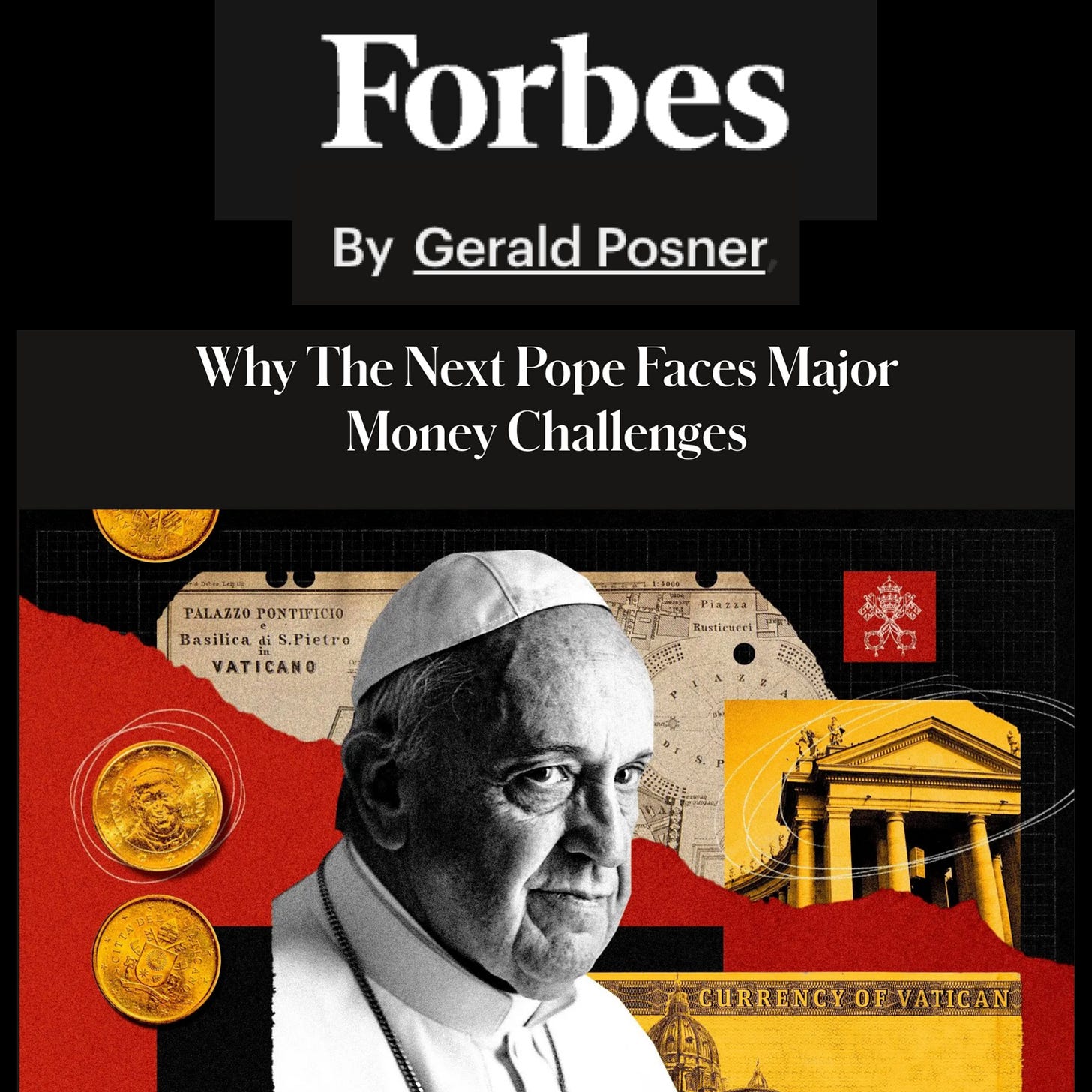"Jesus Christ with an MBA"
My latest in Forbes on how the next Pope can prevent the Vatican from returning to its bad history of financial mismanagement and corruption
Pope Francis’ sweeping reforms cleaned up some of the mess at the scandal-plagued Vatican Bank, but his management also left its coffers severely depleted. Inside the Holy See’s murky financial future.
“Choosing a successor to Pope Francis comes at a critical time for the Catholic Church. There are the obvious hot-button theological divisions —including whether priests should be allowed to marry as well as the church’s views on gay rights and divorce—but Vatican insiders report that religious issues will not be the only ones debated by the 135 cardinals gathering for the upcoming Papal Conclave. Some are also concerned with management expertise and who might make a good Vatican CEO.
That might come as a surprise to those who think of the Holy See only as the home for the world’s 1.4 billion Catholics. And Vatican City is a sovereign nation with diplomatic missions in 183 countries. So while the next Pope needs to be a religious scholar and good communicator, having the skill set of a to…




